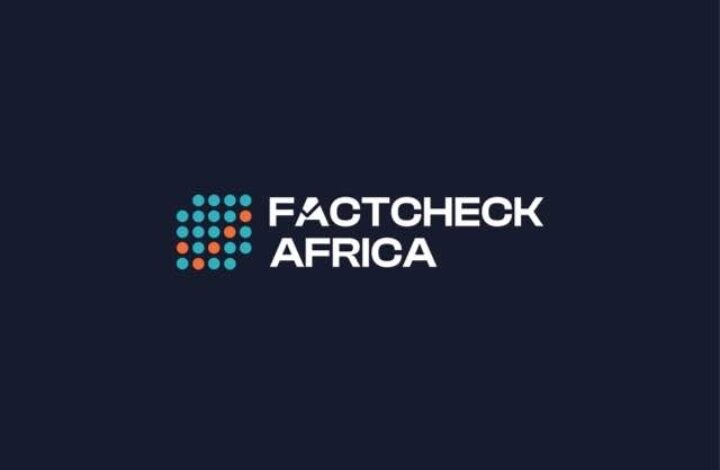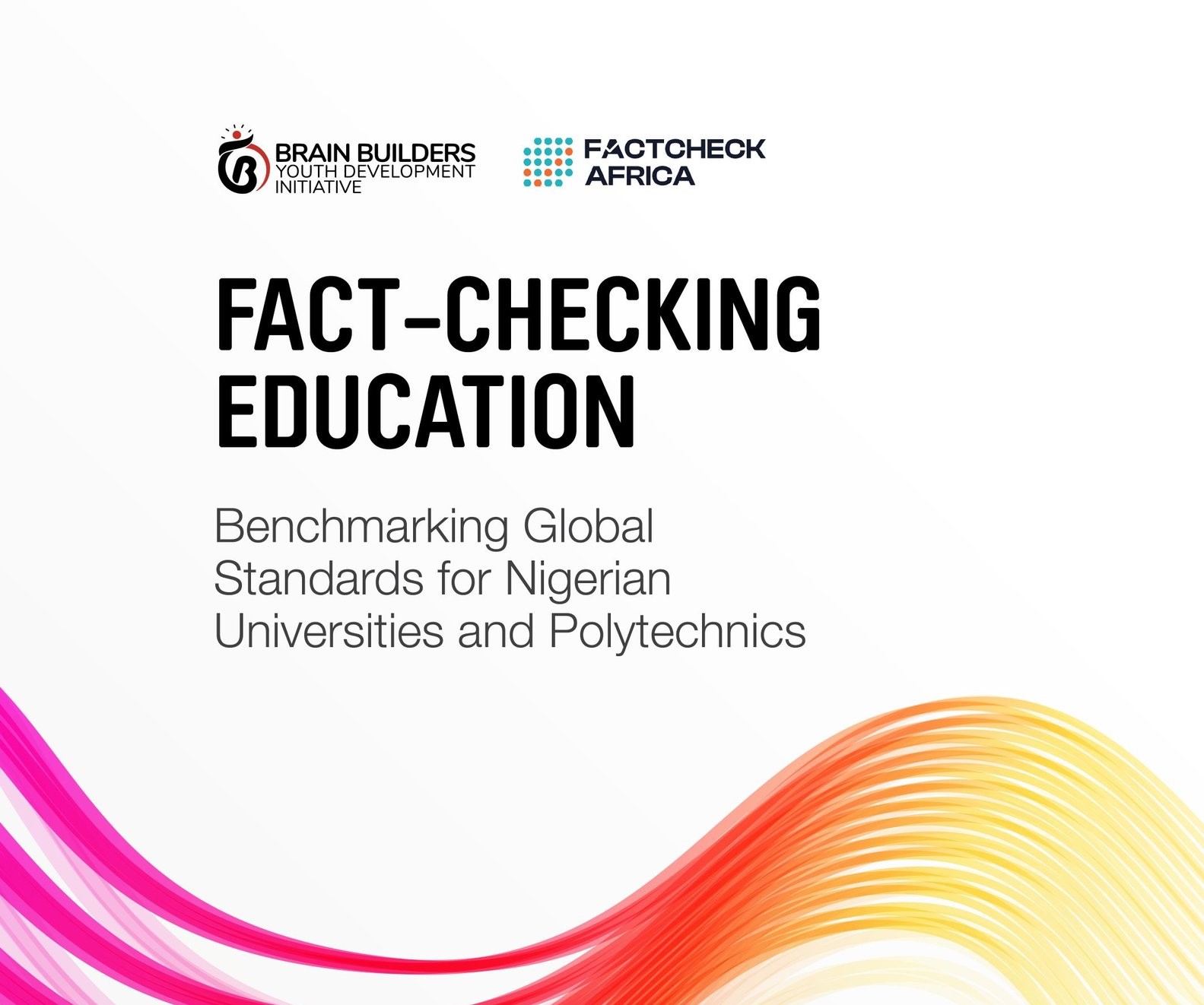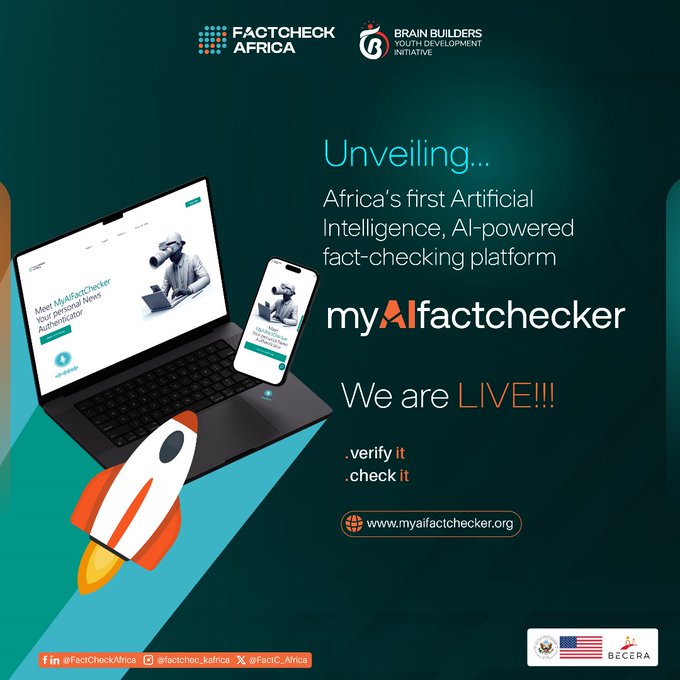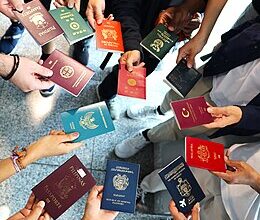FactCheckAfrica Leads Efforts in Advancing Information Integrity Through Milestone Initiatives

Here, Habeeb Adisa, Head of Programs and Ogunsanya Oluwaseye, Lead Researcher at FactCheckAfrica, gave a brief of how the organisation is making continued efforts in its commitment to combating misinformation across Nigeria with impactful initiatives in areas of special concern for African fact-checkers such as gendered disinformation, linguistic diversity, vulnerable and offline communities as well as resource challenges.
These initiatives, which target students, grassroots communities, marginalised groups, media practitioners/journalists, and policymakers have emerged as a critical part of FactCheckAfrica’s activities throughout the year, thereby positioning the organisation to be a key player in building resilience against false narratives and strengthening media literacy in Nigeria.
Development of Fact-Checking Education Curriculum and Equipping Students with Media Literacy Skills
FactCheckAfrica recently developed a groundbreaking Media Literacy Curriculum for Nigerian Students in partnership with Stanford University. This curriculum which was developed by a team of researchers, communication experts, lecturers, and professional fact-checkers was presented for validation at the 25th International Conference of the African Council for Communication Education (ACCE) held at Baze University, Abuja, in November.
It aims to arm students with skills in media literacy, critical thinking, digital literacy, and information literacy, with a focus on evaluating and analysing information. It includes courses such as Critical Information Literacy, Critical Digital Literacy, Critical Data Literacy, Critical Media Literacy, and Moral and Civic Sensibility.

Similarly, the organisation reached more than 9,496 students this year from different tertiary institutions under the umbrella of our Fact-Checking and Digital Rights Youth Conference. The conference seeks to equip tertiary institution students across Nigeria on identifying and combating misinformation. The institutions visited were Kwara State University, University of Ilorin, Kwara Polytechnic, Kaduna State University, Fountain University, Osogbo, Federal Polytechnic Ado-Ekiti, Federal College of Education (Technical) Gombe as well as The Polytechnic Iresi, Osun State.
Reaching Grassroots Communities
In a world where misinformation spreads rapidly, rural communities are often the most vulnerable, lacking access to timely and accurate information, FactCheckAfrica has turned the tide by empowering residents in grassroots communities across Nigeria with the skills to identify and combat misinformation using their local languages.

Through our local partners, we have reached over 14,000 residents including Persons with Disabilities and religious organisations, market women, and internally displaced persons in Sokoto, Lagos, Gombe, Borno, Ekiti, Oyo, Kwara States, FCT Abuja, etc. In addition, the organisation also partnered with local radio stations in these communities to help inform their listeners on the importance of discerning credible information in everyday life as well as equipping them with skills to verify information.
Championing Inclusive Solutions to Tackle Misinformation
Misinformation continues to pose significant challenges across diverse communities, particularly for vulnerable groups like Persons with Disabilities (PWDs). These challenges were highlighted in a CDD report which claimed that fighting information disorder is often not inclusive enough.
“Fact-checking platforms rely heavily on text-based content, which is inaccessible to visually impaired individuals without proper screen-reader optimisation, while video content often lacks captions or sign language for the hearing impaired. Digital and grassroots literacy workshops rarely accommodate PWDs, omitting materials such as braille, sign language interpreters, etc. This is aside from the fact that disinformation specifically targeting PWDs such as fake medical claims or myths is rarely addressed.” it claimed.
However, FactCheckAfrica is not oblivious to the aforementioned challenges; the organisation has since risen to the occasion by taking impactful steps to address them. Through innovative programmes that cater specifically to the PWD community, collaborations with advocacy groups focused on the welfare of PWDs, and assistive technological advancements, we are well aligned with the global commitment to ensuring that no one is left behind in the fight against information disorder.
It is worthy of note to mention that our website and AI Fact-Checking tool, MyAiFactChecker provide accessible fact-checking resources for PWDs. They were designed to also address the unique needs of PWDs, ensuring they can easily identify and combat false information online. For instance, they both include features that cater to individuals with visual and auditory impairments, such as voice commands and screen-reader compatibility. We are also working on incorporating braille, captions, and sign language into all resources.

Furthermore, our mutually beneficial partnership with the Development Initiative for Advocacy in Building Institutions (DINABI), an advocacy group that caters to the welfare of PWDs is blossoming as they have reached over 500 Persons Living with Disabilities. This collaboration has equipped PWDs with the tools, skills, and knowledge to actively participate in the fight against misinformation.

Programmes under this partnership emphasize media literacy, accessible content creation, and community-led fact-checking initiatives. Interestingly, feedback from this laudable initiative was overwhelmingly positive, with many participants expressing gratitude for it. We are furthering our partnership with more advocacy groups such as the Nigerian National Association of the Deaf (NNAD) and the Joint National Association of Persons with Disabilities (JONAPWD) as well as tech companies to amplify our outreach and help develop more tailored contents and tools for PWDs.
Conclusion
These laudable initiatives by FactCheckAfrica showcase its dedication to strengthening an informed society by addressing critical gaps in digital literacy and accessibility. By empowering students, grassroots communities, and PWDs, the organisation is laying a solid foundation for inclusive fact-checking practices and a misinformation-free Nigeria.



